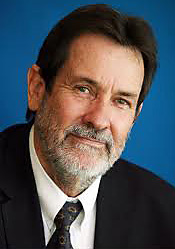 I was suffering from a bad virus and struggling to stay focused at day two of the University Learning & Teaching Festival in Nov 2012, I was not expecting what happened next. Professor Geoff Scott was introduced as a keynote presenter. He is very interesting to listen to and his presentation was engaging. However it was the last slide and how he described it that became my major “Ah Aha!” of the conference. In the days following I kept returning to this slide’s content and it’s implications. I couldn’t resist contacting Geoff who was happy to talk to me over SKYPE and our dialogue became this episode.
I was suffering from a bad virus and struggling to stay focused at day two of the University Learning & Teaching Festival in Nov 2012, I was not expecting what happened next. Professor Geoff Scott was introduced as a keynote presenter. He is very interesting to listen to and his presentation was engaging. However it was the last slide and how he described it that became my major “Ah Aha!” of the conference. In the days following I kept returning to this slide’s content and it’s implications. I couldn’t resist contacting Geoff who was happy to talk to me over SKYPE and our dialogue became this episode.
Geoff is Executive Director of Sustainability at UWS and I asked him what is meant by Sustainability in Higher Education …. his answer could lead to more than one more episode. He describes Educational Sustainability as having four pillars that of Social, Cultural, Economic and Environmental which interact with the four functions of a university, research, teaching, engagement and operations.
I wanted Geoff to elaborate on his last slide of his keynote titled
“Turnaround Leadership for Sustainability in HE – top 15 capabilities in rank order (n = 188)” They were:
- Having energy, passion and enthusiasm for EfS
- Being willing to give credit to others
- Empathising & working productively with diversity
- Being transparent and honest in dealings with others
- Thinking laterally and creatively
- Being true to one’s values and ethics
- Listening to different points of view before coming to a decision
- Understanding personal strengths & limitations
- Time management skills
- Persevering
- Learning from errors
- Learning from experience
- Remaining calm when under pressure
- Being able to make effective presentations to different groups
- Identifying from a mass of information the core issue/opportunity
These were dentified from an International project being run around the world from effective practitioners. Geoff has been doing this research for 20 years. They started with skill olympians in 1992 then looked at many different disciplines then university leaders. He describes how all disciplines have a similar top 15 capabilities. Geoff’s Slide presentation from the Festival is available here for download.
We talk about what is of the heart and what is of the head. Geoff talks about Emotional intelligence or personal and interpersonal capabilities and how they always rate up in the top 15 sometimes they are 10 of the 15. There are cognitive ones in there but not the ones usually mentioned on university websites as graduate attributes. He talks about outcomes and standards. Geoff then identifies the most important pedagogical approaches for teachers to adopt to address the development of these capabilities in graduates.
1. Real world problem based learning centred around challenges identified by graduates who have gone before and have identified what is most important. This is based on research of 1.2 million students no less
2. Going on practicum, if at all possible, and have someone as supervisor who knows what the top 15 capabilities are for that discipline and the practicum uses these capabilities as criteria for success.
As he talked I was almost stuck for words …. that’s unusual 🙂 Here research is showing the most wanted graduate capabilities needed by communities and even countries as vital for sustainability … so what are we doing about it? The question that keeps running around my head is how can a university and even closer to home, how can I as a learning designer map these capabilities back into the courses and design activities and assessments to develop these in the graduates? How can we enrich and strengthen problem based learning and widen the scope and possibilities of the practicum real or virtual?
I believe one of the most strategic pedagogical approaches or tools that will gain in importance in the next 5 to 10 years is that of Scenario based Learning or Simulations. The software for these learning objects has come of age and now it is much easier to develop engaging real life based virtual scenarios using branching to allow the students to learn by mistakes – i.e. when things go wrong. This episode with Geoff has confirmed my intent to go to the USA to up-skill in simulation development using powerful simulation software called Simwriter.
Please listen to the podcast episode and join in the conversation. Ask yourself if you are a teacher: “How can I help my students develop these capabilities?” Would simulations help, what else would work?
Podcast Episode:


Pingback: If you exercise these capabilities ... you will be employed | The Padagogy Wheelhouse | Scoop.it
Pingback: Relational Education | Pearltrees
Pingback: If you exercise these capabilities ... you will...
Pingback: In Support of Excellence
Pingback: In Support of Excellence